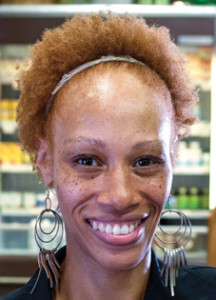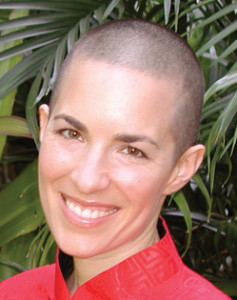Post Dr. Oz effect, consumers are relying on other sources that are creating the latest trends at retail.
The participants are:

Ramona Billingslea
Marketing Manager
Betsy’s Health Foods
Houston, TX

Juanita Landon
Assistant Store Manager
Garner’s Natural Market
Columbia, SC

Todd Pauli
Partner, The Shelton Group
Marketing, NOW Foods
Bloomingdale, IL

Carmela Wolf
Wellness Manager
Down to Earth
Honolulu, HI
One man and his show created a force of sheer domination in the supplement market since its inception in 2009. Dr. Oz and his hugely popular daily TV program, “The Dr. Oz Show,” created a demand for supplements unlike any other single show, program or personality had done in the past, according to retailers in their response to a 2013 national survey.
But in June 2014, Dr. Oz found himself defending some of his product endorsements before a Senate panel over his claims that certain substances can cause “miracle” weight loss.
As the host of “The Dr. Oz Show,” he was grilled over his endorsements of certain weight loss ingredients. Shortly thereafter, his stature in the natural food and supplement market took a tumble, but the supplement market continued to thrive, albeit minus the strength of the affirmations that he had provided.
How has this development changed the face of the retail market in the year that has followed? Vitamin Retailer (VR) surveyed several manufacturers and retailers to sample the changes that have occurred in consumer demand and interest in health food and supplements now that a year has passed.
In this roundtable discussion, their responses point to the continued importance of consumer education and research, while product and ingredient trends are developing independently of a single trusted source and instead are becoming known through a variety of social media and traditional media avenues.
VR: How has the development concerning Dr. Oz changed what you see happening in the supplement market on the retail level?
Pauli: Since his congressional subcommittee hearing testimony, there seems to be less reliance on the latest thing Dr. Oz raves about for bumps in sales, and less merchandising built around his recommendations than at the height of his popularity. We’re also not hearing manufacturers talk about the sudden run on a relatively obscure product that Dr. Oz mentioned either.
Billingslea: What we have seen at Betsy’s Health in Houston, TX is a definite decrease in the number of customers coming into the store with “Oz” on their lips. We have recently had an increase of major chains like Sprouts and Whole Foods Markets in our area, which began around the same time Dr. Oz changed his approach. Both of these changes have contributed to a drop in our customer count for two years that is just now beginning to climb back.
Wolf: At our store, we no longer see many customers asking for the latest Dr. Oz “miracle” product, but they do still come in looking for the products and ingredients he has talked about lately. I don’t watch his show or others like it, but I am guessing he is doing less shows about specific supplements. The raspberry ketones that got him in trouble have completely died in sales over the past year. Once they sell out we won’t be reordering any more nor will we order more of some of the other products he has touted for weight loss.
Landon: I believe the developments following the testimony of Dr. Oz to Congress have made the natural health community stronger. Dr. Oz and others before him have laid a solid foundation for consumers to make well-rounded health decisions including supplementation of herbs, greens, vitamins, synthetics (hormones, amino acids etc.), nutrition and exercise. Having conventional doctors support a more natural based way of living I feel only helps bridge the gap between nutrition and health of the mind, body and soul.
I have witnessed continued support of Dr. Oz’s suggestions of natural herbs or supplements. Recently, consumers are doing more homework and asking our wellness consultants more questions on the benefits of certain products before considering a purchase. We are glad to see customers take responsibility for their own health because not every new trend works for everyone.
VR: Are there any new products or ingredients that have become trendy recently and how has that happened?
Pauli: Curcumin is an interesting example of a product that had been bubbling just below the surface, finally breaking out into the mainstream. It’s been heavily researched for the past decade in particular, with very positive results. Initially looked at for arthritic-like symptoms, there is a lot of evidence that it can have benefits for most conditions with an inflammation connection. Once the health care community saw a number of published clinical studies, and more people tried it with good results, word-of-mouth became the driving factor. And this phrase includes social media and blogs.
Billingslea: In Houston, the biggest new trend is essential oil products. Several multi-level companies have customers abuzz with their products. At Betsy’s Health Foods, we get multiple questions weekly from people looking for the multi-level formulas at more affordable prices. This trend has been fueled by word-of-mouth and social pressure. Someone at work or in your social set decides to sell the product, and the next thing you know, you are buying some to try out. It’s like Tupperware for natural foods.
We have also seen people come in asking about condition-specific formulas they have seen on TV or found on the internet. We get many emailed questions about whether or not we carry these products. When we research them, we usually find a website filled with non-Dietary Supplement Health and Education Act (DSHEA) statements that are deceptive to someone unfamiliar with the industry. The fact that these products are marketed by companies I have never heard enforces my commitment to educate and reach out to customers to inform them of the strict, structure-function guidelines our industry has in place.
Wolf: At our store, chia seeds are everywhere (food, drinks, fibers, protein powders, etc.), which is fine by me as they are a healthy food (good source of soluble fiber, omega-3s, protein, minerals, etc.) with many applications. For example, we use them as an egg replacer in our gluten-free blueberry buckwheat pancakes at home.
I am also very happy to see more and more brands come out with truly 100 percent food sourced vitamins (Garden of Life, MyKind Organics, Sun Warrior Raw Vitamins, Country Life’s Real Food Organics Daily Vitamins, Natural Factors Whole Earth & Sea, and Nature’s Plus Source of Life Garden Vitamins). This industry trend is exciting to see; moving away from synthetic vitamins to real food-sourced ones that can be organic certified and/or non-GMO (genetically modified organism) verified.
Landon: Yes, we do have a number of new trending items in our store currently. Some of the most popular include: Doterra essential oil products, Country Life Real Food Organics Multi-Vitamins, Now Solutions Ultrasonic Faux Wood Grain Diffuser, Garden of Life products, and Health Force products.
The three things I believe influences these trends are:
1. The free publications we provide which highlight natural living and include facts about nutrition, exercise, and living a more natural life, safer and healthier ways to clean and information on natural products.
2. Our staff’s instruction about living a natural lifestyle using information from natural product company representatives’ instruction. Each company has a story of how using their supplements or changing one’s diet and adding daily exercise impacts lives.
3. Finally, our customers communicate the benefits they experience to family and friends. So our influencers are our actual customers.
VR: Has social media influenced these trends? Can you give examples?
Pauli: Today, social media is woven into consumers’ lives so intricately; any consumer trend will be partially shaped by social media. With natural products, some trends are more easily enforced by social media than others. Essential oils represent a product category that has enjoyed a lot of attention lately, largely due to social media. Essential oils lend themselves well to social channels, because, beyond product facts, consumers can easily share oil blends for a myriad of uses ranging from aromatherapy to making their own household cleaners. This product category fits perfectly with the do-it-yourself trends popular with bloggers and other social media influencers.
Billingslea: Since social media has mushroomed, the capabilities of word of mouth “testimonials” have followed suit. It makes sense that social media plays a role in what interests customers looking for solutions to certain problems or for a healthier lifestyle in general. I believe the trend in essential oils has been aided by the ability of people to sell the multi-level product on their personal social pages and make claims they don’t realize may actually be illegal. Because the people reading such posts are presumably friends of the person writing the post, then they will more easily jump on the bandwagon.
Wolf: Social media influences everything these days, but I am not so plugged into that anymore to know personally.
Landon: Yes, social media has helped influence a large customer base for all of our stores. We have several ways that we us social media, including Facebook.
On our Facebook page, we share the Employee Pick of the Month. Each employee at our Columbia store highlights a product that has worked well for them. We then have the option of writing an article or producing a video about that product. This option has brought us great success with customers who are considering natural options, but want first-hand testimonies before making a purchase.
We also highlight do-it-yourself ideas on our Facebook page. For example, we show how to make facial masks using bulk items, natural cleaning solutions using essential oils and how to enhance your protein or smoothie drinks.
When I speak to customers, there are two blogs/newsletters I usually suggest to help them expand their knowledge of new and existing natural supplements. My favorite is Dr. Mercola’s weekly newsletter and Natural News. Both of these newsletters stay ahead of the trends and give detailed information on the true benefits of popular supplements.
Also, our website offers a wealth of information and we have an email sign-up list to keep our customer informed. We feature a section called “Ask the C.N.H.P (Certified Natural Health Professional).” This service connects our customers to a Certified Natural Health professional if they want to discuss issues in the comfort of their home before entering the store.
VR: Are there still strong influences by advertising in traditional media like TV, magazines on consumers interest in supplements and specific ingredients? Can you provide an example or source of information, or any specifics you may have either witnessed or heard about from your retailers?
Pauli: Although social media influence grows, traditional media like TV and magazines still continue to have influence over consumer behavior. Product manufacturers realize that while social media-based marketing is highly targeted, it’s usually not as wide reaching as a well-planned television or print campaign.
With consumers getting their product information from so many different communication channels, they have more power than ever to seek out for product information on their own or tune out certain messages. As a result, the best manufacturers and ingredient companies will continue to use all available tools to influence consumers in a highly integrated, content-driven product campaigns.
Billingslea: I think that traditional media influences have definitely waned. Perhaps, television and magazine ads help by pointing consumers towards a website where they can find out more information. I believe most people check out stores and products on the internet before coming in to shop. For example, the main way people enter our website is by searching for some form of our name in a search engine. In other words, they’ve heard about us from a friend or relative and “Google” us to find out more before coming into the store.
In an age where information is everywhere, our consumers are doing more and more online research to help them make health and product decisions. We don’t know yet whether this trend is helpful or detrimental to the American consumer.
Wolf: Yes, all media has a strong effect in consumer buying habits. We also have local health radio shows that drive customers to our stores asking for products, besides the usual internet ads, TV ads, newspaper ads, and articles. They all still have an impact. Customers come in with the information written down, an article clipping or info on their smart phone and ask for the specific product or ingredient/supplement mentioned.
A specific example is when a study came out recently showing that nicotinamide, a form of vitamin B3, significantly reduces the incidence of nonmelanoma skin cancers among people with a previous basal cell or squamous cell carcinoma, many customers came in looking for it.
The media has also had a great impact on awareness of GMO and non-GMO products. The Just Label it movement is picking up more support and exposure online and in traditional media. Our company is a long-time member of the Independent Natural Foods Retailer Association (INFRA) that has started to have a bigger voice in the non-GMO verification push. And I am very happy to see this designation is prevalent not only in the foods we carry, but in the supplements and natural skin/hair care too. The more companies that align with the non-GMO movement, the better it is for our health and the health of the planet.
Landon: Yes, television and magazine advertising still exert strong influences on consumers. Our repeat customers are usually those who read our free publications.
The local media also has influence over their audiences. I have been interviewed by a local TV station on a variety of topics including natural ways to deal with cold and flu symptoms, natural gift alternatives for Valentines’ Day and natural solutions for allergies. Consumers are seeking information in many forms.
National media has played a role as well and we have had customers mention that they have heard about natural products on the Rush Limbaugh radio show, Fox News, and “Good Morning America” just to name a few.
The publications our customers have most frequently mentioned when they come into the store include: Life Extensions, The Energy Times, Woman’s World, Martha Stewart, Oprah, Natural Awakenings, and Extraordinary Health. VR





![[Sponsored Video] Special Report: Bergamonte®, the Untold Story](https://vitaminretailer.com/wp-content/uploads/2023/06/sponsored-video-special-report-b-300x169-1707947265.jpg)







